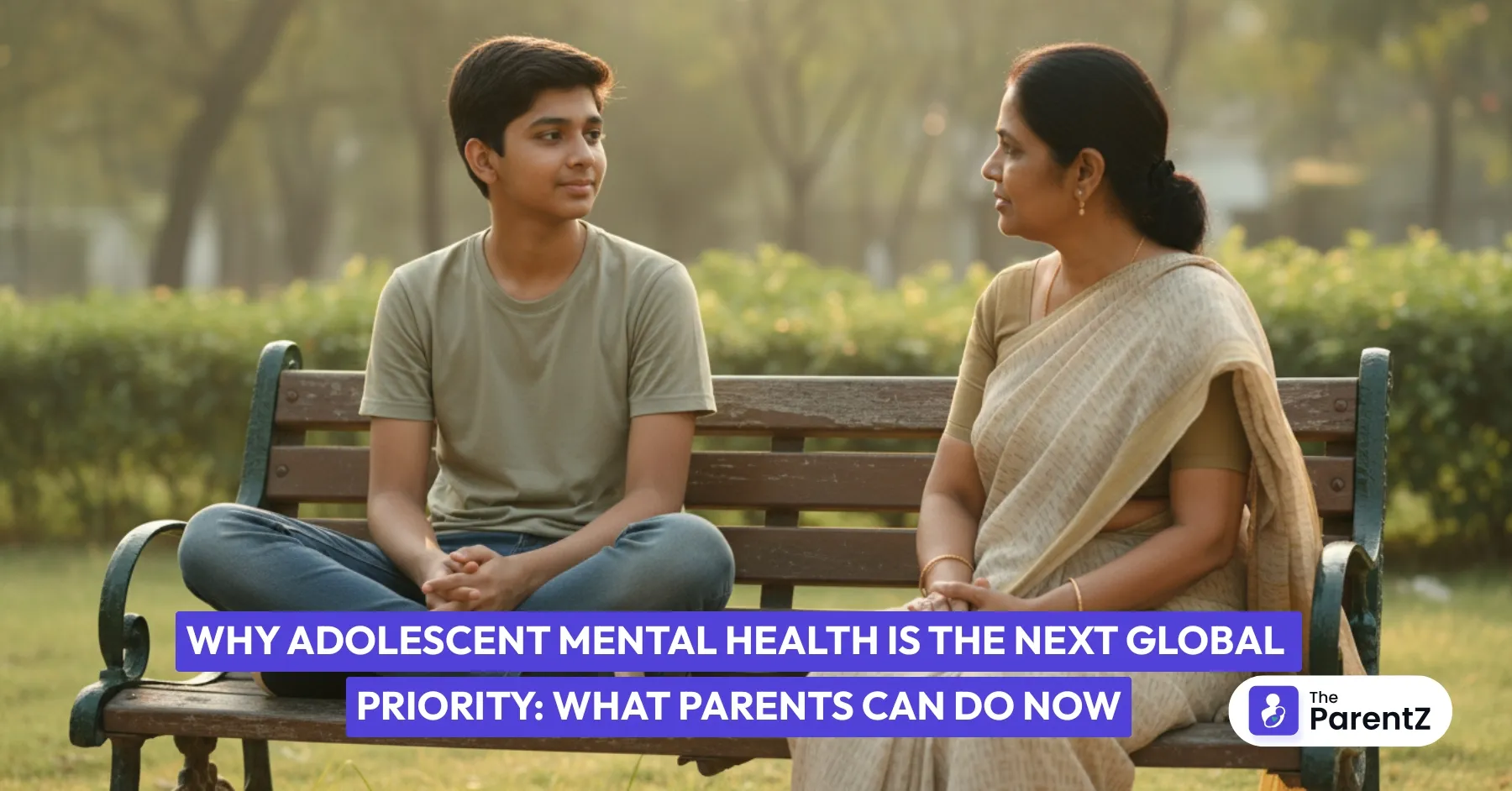If you have a teenager at home, there's a good chance they're struggling with something you might not even see.
The numbers are startling. Right now, one in every seven teens between 10 and 19 is dealing with a mental health condition. That's not a small number; that's millions of kids worldwide. And most of them aren't getting any help.
The World Your Teen Is Living In
Remember when you were a teenager? Now multiply that stress by ten.
Today's teens are growing up in a world that's completely different from what we experienced. They're dealing with constant social media pressure, where everyone's life looks perfect except theirs. They're scrolling through feeds that tell them they're not thin enough, not popular enough, not successful enough. They're comparing their behind-the-scenes to everyone else's highlight reel.
Add to that academic pressure, uncertain futures, climate anxiety, and a world that honestly feels pretty scary sometimes. Oh, and they went through a pandemic during some of their most formative years. That matters more than we realize.
Depression and anxiety aren't just buzzwords; they're the leading causes of illness among teens right now. And suicide? It's the third leading cause of death for 15-29 year-olds.
Why This Matters More Than You Think
When we don't address mental health issues during the teen years, they don't just disappear. They follow our kids into adulthood, affecting their relationships, their careers, their physical health, and their ability to live the life they deserve.
Think of it this way: adolescence is when your kid's brain is literally rewiring itself. It's when they're forming habits, coping mechanisms, and patterns that will stick with them for life. If we can help them build healthy mental habits now, we're setting them up for decades of better wellbeing.
What's Actually Happening With Your Teen
Maybe your once-chatty kid now stays in their room all the time. Maybe their grades are slipping. Maybe they're suddenly irritable or withdrawn. Maybe they're sleeping too much or barely sleeping at all.
These aren't just "teen phases." Sometimes they are, sure. But sometimes they're red flags.
Anxiety might look like your teen avoiding social situations, constantly worrying about school, or having panic attacks. Depression might show up as low energy, loss of interest in things they used to love, or talking negatively about themselves constantly.
And on top of that, behavioral issues in younger teens, difficulty concentrating, risk-taking behaviors; these can all be signs of underlying mental health struggles too.
What You Can Actually Do (Real Talk)
We have all heard advice like "just communicate better" or "create a safe space." That's nice, but what does that actually mean on a Tuesday night when your teen won't talk to you?
- Start with small, real conversations: Don't sit them down for a big talk. Try talking while you're doing something together, like driving in the car, cooking dinner, or walking the dog. Teens talk more when they don't have to make eye contact.
- Ask actual questions and then zip it: Instead of "How was school?" (answer: "fine"), try "What was the most annoying thing that happened today?" or "Who did you sit with at lunch?" Then here's the hard part: listen without immediately trying to fix it or give advice.
- Validate their feelings, even when they seem dramatic: When your teen says they're stressed, don't say, "You think you're stressed? Wait until you have a mortgage!" Just say, "That sounds really hard. Tell me more." Their feelings are real to them, and that's what matters.
- Watch for changes, not drama: All teens have mood swings. What you're looking for are changes in patterns. For instance, are they suddenly doing worse in school? Dropping friends? Losing interest in activities they loved? Not eating or sleeping normally? These are worth paying attention to.
- Make mental health normal in your house: Talk about your own stress and how you manage it. Go to therapy yourself if you can. Let them see you taking mental health days. When it's normalized, they're more likely to come to you when they need help.
- Limit screen time (including yours): We know that it's easier said than done. But screens before bed, endless scrolling, and constant social media comparison are genuinely harming our kids' mental health. Start small; maybe put phones out of bedrooms at night, or no phones during dinner.
- Get professional help early: Don't wait until things are terrible. If your gut says something's off, talk to your pediatrician or find a therapist. There's no medal for toughing it out alone.
- Be the calm in their storm: When they're melting down, they need you to stay steady. That doesn't mean you're not worried; it means you're the one they can count on not to panic.
Conclusion
You don't have to be perfect. You're going to say the wrong thing sometimes. You're going to miss signs. You're going to get frustrated. That's okay. What matters is that you keep showing up, keep trying, and keep the door open.
Your teen needs to know that no matter what they're going through, you're in their corner. Not judging, not lecturing; just there.
The fact that you're reading this right now means you care enough to learn. That matters more than you know.
Adolescent mental health isn't just a crisis; it's an opportunity. An opportunity to raise a generation that understands mental health, that asks for help when they need it, that breaks the cycles many of us grew up with.
It starts with you. It starts today. And it starts with simply being present, being patient, and being willing to see your teen for who they really are, not who you hoped they'd be or who they used to be, but who they are right now, in this moment.
They need you. And you've got this.





Be the first one to comment on this story.